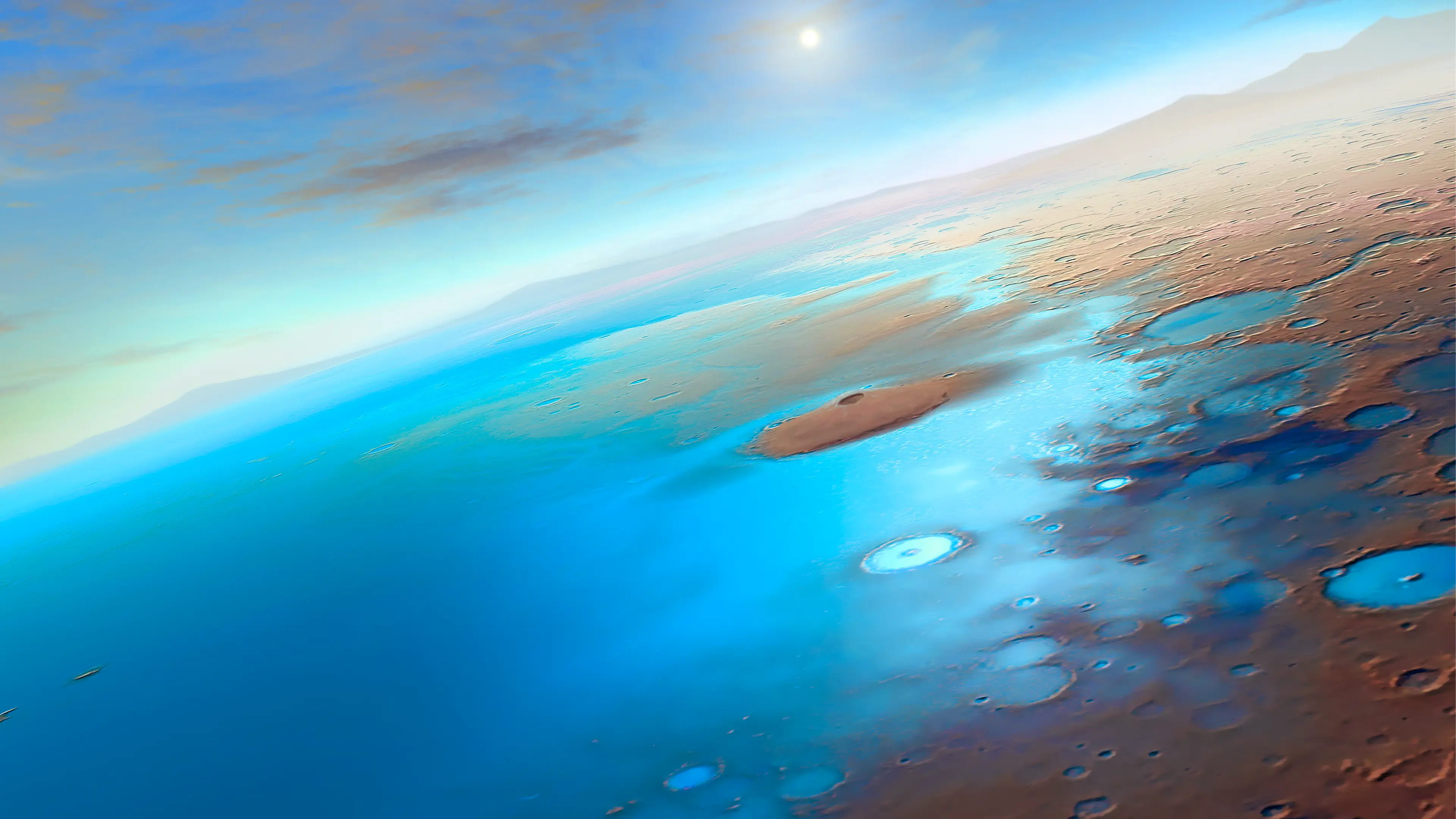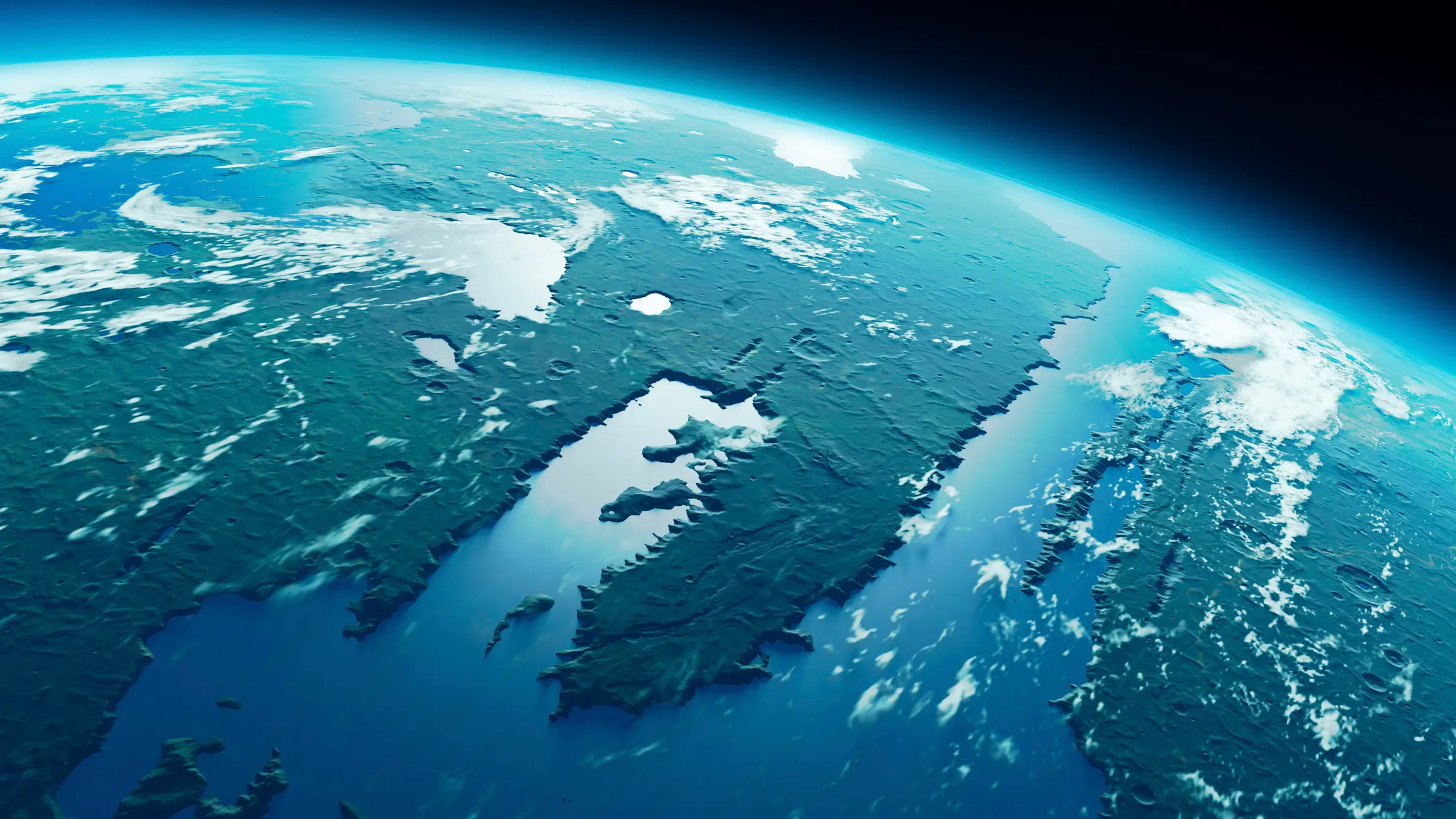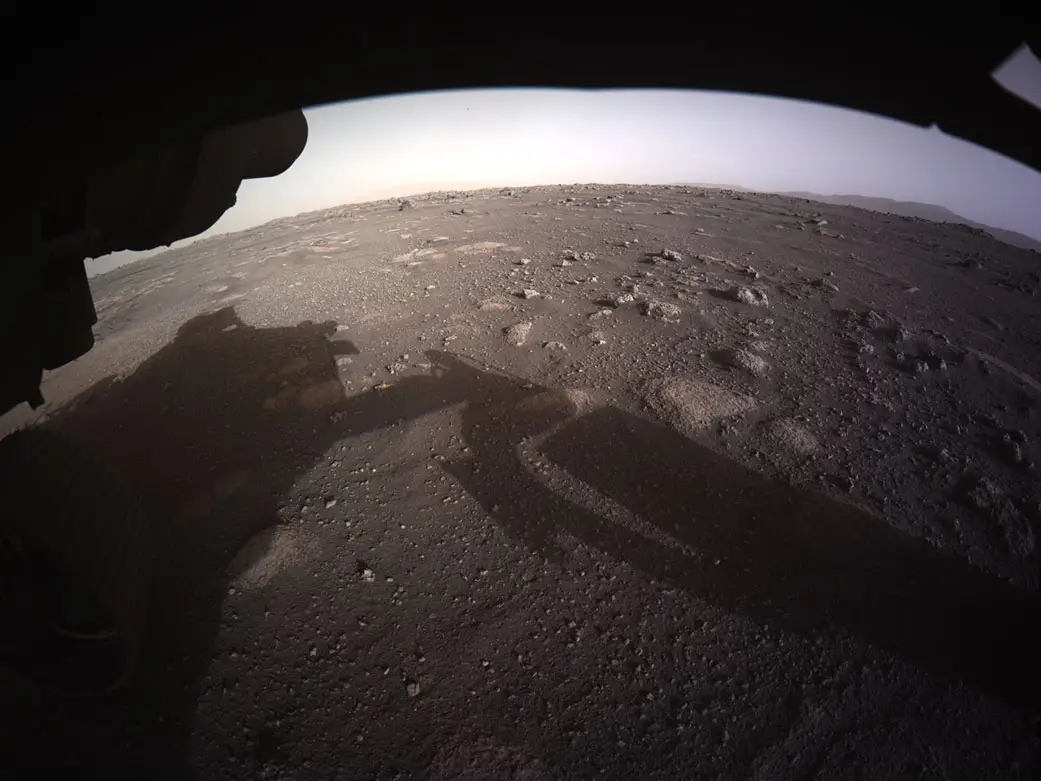
Despite being Earth's nearest planetary neighbour, Mars is a cold and desolate planet. But scientists think it wasn't always like that.
And now, new data collated by China's space missions have finally been looked into by researchers which give extra weight to the idea that Mars was once a very wet planet, full of water - and even beaches.
The China National Space Administration's (CNSA) Zhurong rover, launched in 2020, was behind the initial data haul that has since been looked at by space boffins.
Landing on Mars four years ago, it has spent its time on the Red Planet studying the make up of Mars' surface and searching for icy content under the surface, as well as collating samples of the atmosphere for readings.
Advert
First and foremost scientists have thought Mars had a vastly different look in its history for a long time.
Ever since NASA launched the Mariner 9 orbiter back in 1971, the spacecraft mapped 85 percent of Mars' surface and indicated a history of oceans on its surface dating back billions of years.
Now, a new study published in the Proceedings of the National Academy of Sciences has added to the evidence of Mars’ past oceans. That is after the discovery of buried beaches across the planet’s surface.
Dr Benjamin Cardenas, a co-author of the research from Penn State University, said: "Zhurong was sent to southern Utopia Planitia near locations where paleoshorelines have been mapped from satellite data.
"Typically the radar picks up on even subtle changes in sediment size, which is probably what’s happening here."

The study adds: "Through radar data gathered by the Zhurong Rover, we identify extensive dipping deposits in the subsurface of southern Utopia Planitia.
"These deposits have structures similar to those of Earth’s coastal sediments.
"This finding implies the past existence of a large water body, supporting the hypothesis of a past ocean in the northern plains of Mars."
The research suggests that the Martian beaches have actually moved over time, with a major indication that the sands grew out into the ocean by at least 1.3 kilometres.
"It’s a simple structure, but it tells you there had to be tides, there had to be waves, there had to be a nearby river supplying sediment, and all these things had to be active for some extended period of time," Cardenas said.

The beaches themselves go back four billion years or so.
And you might be thinking 'so what?'. But it could help humanity in the ongoing search for extraterrestrial lifeforms - past or present.
“Mars expresses Earth-like geological features, seasonal cycles, and day–night rhythm making it a unique analog to the evolution of the Earth and informing the search for extraterrestrial life,” researchers said.
“Although the surface of present-day Mars is cold and dry, geological features such as valley networks, open - and closed-basin lakes, deltas, alluvial fans, pitted-cones, and sedimentary rocks support the prior existence of vast amounts of liquid water.”
Topics: Space, China, Weird, Science, Environment, Education, NASA